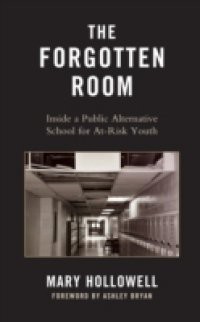Located in a rapidly-growing county in the southeastern United States, Peachtree Alternative School is a dumping ground for chronically disruptive students that regular teachers can no longer handle. The school has some of the toughest kids that society has to offer: kids who have dealt drugs, attempted rape, brought weapons to school, and made terrorist threats. Neglect, understaffing, and overcrowding create a volatile situation; Teachers survive threats, assaults, brawls, and rampages with their therapeutic philosophies barely intact. The Forgotten Room is a teacher survival story. It examines the darker side of American education through chronicling the course of Peachtree Alternative School's tenth and final year. It offers a glimmer of hope in the safe zones created by hardworking teachers, but it is also a cautionary tale about the consequences of bureaucrats neglecting troubled teens. Hollowell's multidisciplinary book provides a rare look at public alternative schooling in America. This gritty and compelling ethnography is part of a growing movement in academia to make ethnographic studies more accessible. It exposes punitive school policy, demonstrates the prison-industrial complex, and reveals school board corruption. In addition, it pinpoints quality teaching of chronically disruptive youth. As ethnographic nonfiction, The Forgotten Room breaks down the walls between social science and literature.

